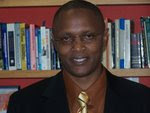Special gift from Kenya to America
Nomadic people touched by Sept. 11 deaths
David Wachanga
Issue date: 9/19/06 Section: OPINION
Print
Email
Article Tools
Page 1 of 1
An unexpected gift - 14 cows - to "ease the pain and suffering" of Americans after the Sept. 11, 2001, tragedy came from an unexpected community - the nomadic Maasai of Enoosaen village in South West Kenya. The Maasai, a community that holds cattle sacred, is broadly unfamiliar to residents of Manhattan. And cows may not mean a lot to many ordinary Americans. But it is the ultimate gift one can get from this community.
The gift, presented in 2002 to William Brancick, then Deputy Chief of Mission at the U.S. Embassy in Kenya, was understandably belated. Maasai had not appreciated the depth of the Sept. 11 tragedy until one of their sons, William Naiyomah, a student at Stanford University and who happened to be in New York on the fateful day, returned home and narrated the story to the elders.
The elders, touched by the immeasurable animosity perpetrated against humanity, humbly gave the ultimate gift, which an elder described as "handkerchiefs to wipe away tears." And it is more than a handkerchief, for cows are the core of life for the Maasai. They are sacrosanct, more than a belonging. It is so special that "you give it a name. You talk to it. You perform rituals with it." Their centrality to the Maasai is a complexity that only Maasai can fathom. Naiyomah had a touching reason for leading his community in consoling the Americans.
"I didn't want to do it just by donating a cow," Naiyomah said. "I wanted to involve the elders that raised me, to bless it and make it sacred, to console and comfort a nation that had taken care of me and given me an education, given me a place to live. I just couldn't ignore their pain."
The gift was ceremoniously delivered. Songs and dances accompanied the gift and warriors held banners for all to see: "To the people of America, we give these cows to help you." As the cattle were handed over, the U.S. national anthem was played. Accepting the gift on behalf of the U.S. government, Brancick succinctly captured the profundity of this act of magnanimity: "I know that for the Maasai people the cow is valued above all possessions and that the gift of a cow is the highest expression of regard and sympathy."
The cows because of climate differences could not make it to the U.S.; however, they have numerically increased. They are now 26! Yet the elders have agreed to take care of what have now become the "American cows."
Marking five years since the Sept. 11 tragedy, U.S. Ambassador to Kenya Michael Rannberger visited Enoosaen and reciprocated the Maasai generosity with "a gift of 14 scholarships to needy Maasai." Speaking before a poster of the U.S. flag, the Twin Towers and a pair of Zebu cows, Rannberger noted the uniqueness of the Maasai gift - of all the acts of solidarity and goodwill, the one that profoundly struck the heartstrings of the American people like no other was the generosity of the Maasai elders.
Ndirangu Wachanga is a Mayborn lecturer of the Mayborn Graduate Institute of Journalism. He may be reached at wn0003@unt.edu.

No comments:
Post a Comment